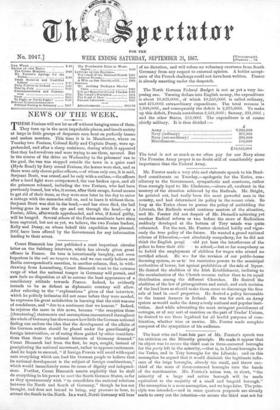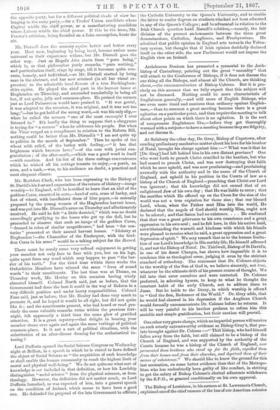The least wise and least fair part of Mr. Forater's
speech was his criticism on the Minority principle. He made it appear that its object was to secure the third seat in three-cornered boroughs for the party left in the minority,—that is, in Liberal boroughs for the Tories, and in Tory boroughs for the Liberals ; and on this assumption he argued that it would diminish the legitimate influ- ence of the large boroughs, already too small, and throw one- third of the seats of three-cornered boroughs into the hands of the reactionaries. Mr. Forster's axiom was, in short, "the minority of a large and active borough will be made equivalent to the majority of a small and languid borough." The assumption is a mere assumption, and we hope false. The prin- ciple was intended,—and in some quarters proposals are already made to carry out the intention—to secure the third seat not for
the opposite party, but for a different political shade of view be- longing to the same party,—for a Trades' Union candidate where Capital wields the chief-power, or a manufacturing _candidate where Labour wields the chief power. If this be the issue, Mr. Forster's criticism, being founded on a false ssawnptiou, beats the air.































